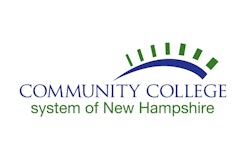LANSING, Mich. —Officials hope to publicly unveil the Flint Promise initiative in September, according to a top aide to Gov. Rick Snyder, to lend a hand to high school graduates in Flint, a city in desperate need of a lift because of o its lead-tainted water crisis.
Transformation manager Rich Baird told The Associated Press that $1 million to $2 million in private donations has already been committed, including $500,000 from one source. The administration wants to raise $5 million over two years.
And under new legislation that backers hope to enact this fall, Flint also would become the state’s 11th “Promise Zone.”
The program — created in 2009 and inspired by the anonymously funded Kalamazoo Promise — allows communities that secure enough private funding to also use state tax revenue to pay students’ college tuition. It is limited to 10 high-poverty areas currently.
Nine Promise Zone school districts — Detroit, Lansing, Pontiac, Battle Creek, Saginaw, Benton Harbor, Hazel Park, Baldwin and the Muskegon Area Intermediate School Districts — make scholarships available to all those graduating from local public and private high schools. A 10th, Newaygo, is expected to begin issuing scholarships to class of 2017 graduates.
The programs vary but at a minimum must cover tuition and fees to obtain at least an associate’s degree from a community college. Some also cover the cost of a bachelor’s degree.
The programs typically require low-income students to first apply for need-based federal Pell Grants or the state’s Tuition Incentive Program.
A Flint Promise, would be “a sign of hope” and give residents an incentive to stay, said Senate Minority Leader Jim Ananich, a Flint Democrat who has tried to expand the number of Promise Zones since 2012.
“Now is the time to do it. The quicker we offer it the better,” he said. “We’re all concerned about next (school) year the Flint schools losing students at a rate that they’re never going to be able to make up for.”
Baird, a Flint native and the governor’s point person in the city, said there has been “a lot of enthusiasm” in early talks about scholarships and Flint’s program could be modeled after the Detroit Promise, which was sparked in 2011 when Snyder announced his intention to provide Detroit graduates with a tuition-free path to an associate’s degree or technical certificate.
Peter Remington, the founder and CEO of a firm that helps nonprofits raise money, was involved in the Detroit Promise and is helping with Flint pro bono, Baird said.
Snyder himself solicited donations at the Mackinac Policy Conference in June, Baird said.
“We’re passionate about the Flint Promise because it’s yet one more component of bringing opportunity and a quality of life back to a community that’s had more than its fair share of tough times,” he said.
The biggest obstacle is fundraising. Communities must raise enough money to pay for scholarships on their own for two years before they can begin keeping half of the annual incremental growth in state education tax revenue to help fund their promises.
Ananich cited encouraging talks with Snyder, whose administration has been blamed for the lead-contaminated drinking water and who with the GOP-controlled Legislature has committed state aid and other assistance to address the emergency.
Detroit Pistons owner Tom Gores, who has pledged to raise $10 million to address needs in his hometown, and NBA great Earvin “Magic” Johnson are exploring the possibility of creating a Flint Promise. They each donated hundreds of thousands of dollars last year to the Lansing Promise program and have said that fixing Flint’s water alone will not solve long-term troubles in the city of roughly 100,000 people.
Without the legislation, however, Flint would have to wait to also qualify for tax revenue until existing programs are dissolved – which has happened once, in Jackson. Lawmakers earlier this year approved a bill to clarify Promise Zone laws, yet a provision that would have expanded the number of zones to 15 was removed in the House.
There is some concern about the hit to the K-12 budget once more communities qualify for state funding and if the program is expanded to additional districts.
But Chuck Wilbur, who was Democratic Gov. Jennifer Granholm’s education adviser and now provides expertise to Promise Zone boards, said state financial support for the scholarships is a “tiny drop in a big ocean” that is the school aid fund.
“It largely unlocks a community’s own resources,” he said. “It’s not a big government program.”
Flint Community Schools Superintendent Bilal Tawwab said a Flint Promise would be an “excellent resource” for students wishing to go to college.
“Anything that aids our students in furthering their education is welcome and open to consideration,” he said in an email.
Tawwab, who expects enrollment to remain steady at 5,400, said district officials have been unable to determine if the water crisis has or will hurt enrollment.









